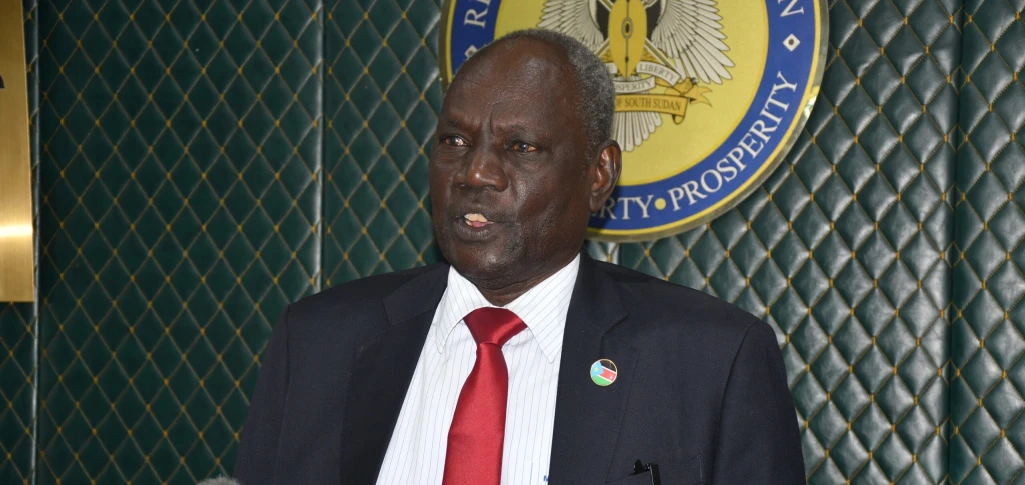
The first-ever South Sudan elections will be held without a constitution, the minister of information has announced.
Speaking to reporters on Friday in Juba, Michael Makuei said making a constitution is a process which should not be done in a hurry by the appointees but rather be left to the elected government to make it.
“Since constitution making is a process, we don’t need to hurry up with it so that we can have a constitution. Yes! We hurried up with our interim constitution which is operational now in order to take us to the independence because we could not become independent without constitution. That is how we came up with that constitution hurriedly knowing that we will come up with the permanent constitution after independence,” Makuei said.
The current Transitional Constitution of South Sudan which superseded the Interim Constitution of 2005 was signed by the President on Independence Day – July 9, 2011 – and came into force on the same day, making it the supreme law of the country.
According to the 2018 peace agreement, the permanent constitution is among the critical provisions expected to usher in a new democratic dispensation. It’s also a requirement that must be in place before elections. But many argue that such a critical document cannot be produced by the appointed parliament.
“The permanent constitution need to be prepared and passed by the representative of the people. This parliament now which is 550 plus the Council of States, which is 100 that makes 650. Are these the representatives of the people?” Makuei asked.
“These people! The current parliament does not represent the people of South Sudan and as such, they need to go. We need to go for elections, the people should be given opportunity to elect their representatives and it is the representatives of the people who will come and pass the constitution not us.”
The government spokesperson declared today that having the constitution should be removed among the conditions for holding elections next year.
He said the current transitional constitution will be used for elections and the elected assembly will draft the constitution.
“What we are saying is that, the current constitution making process, Yes! Will continue but we will continue with elections according to the current constitution. We will amend the current constitution so that it give us the power to elect. The body that will be elected be a constituent assembly,” he said.
The constituent assembly is the body elected in order to write the constitution.
Makuei attributed the current parliament to the peace agreement which he said does not reflect the will of the people of South Sudan to draft the constitution.
“The parliament comprised of appointees is not the parliament of the people. This is the parliament of the agreement and the agreement is not representing the will of the people of South Sudan…we are going for elections and it is this elected body that will come and pass the constitution. So it should not be used as an obstacle or condition that if the constitution is not there, then we are not going for elections,” he argued.
Makuei only considered two laws to be the most important out of so many others expected to be in place before the country can go for elections.
He said, “If the elections law is not out, definitely; we will not go for elections. This is the most important law and the political parties’ council law. These are the two laws which are the most outstanding and that must be there in order to run any elections.”
On Monday, the parliament passed the elections act, 2023 (Amended) but the political parties council is yet to be reconstituted including the national election commission.
South Sudan is expected to for its first ever general elections on December 22, 2024.